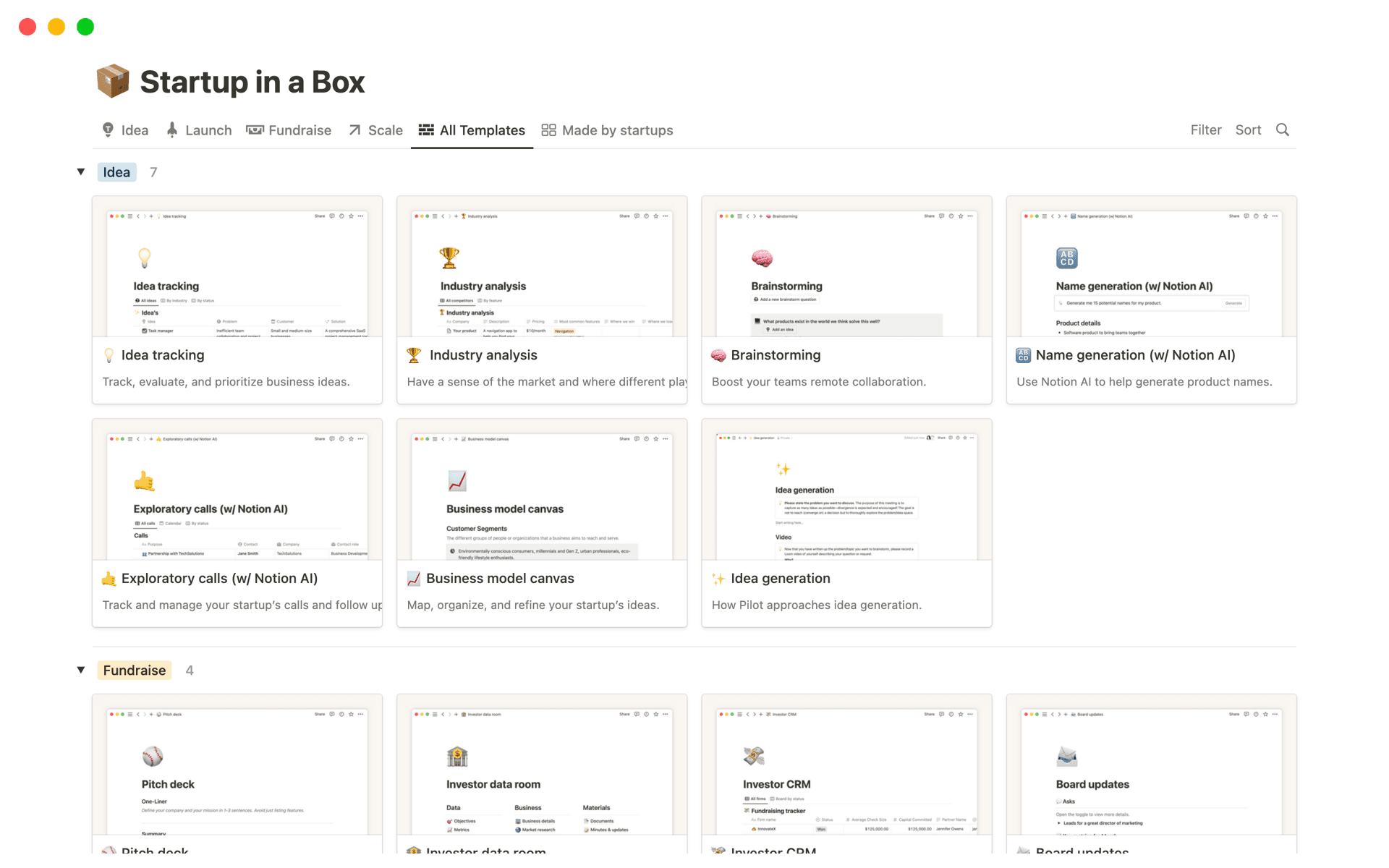Startup Operations play a notable role in shaping a seamless workflow for data scientists, allowing for efficient management of data, resources, and team collaboration. A well-designed Startup Operations Notion template can organize projects, documents, and milestones, ensuring clear communication and streamlined processes.
Before diving into creating your own Startup Operations template, explore these compelling options below to facilitate and enhance your operational workflow.
What Should Startup Operations Templates Include?
Choosing the right Startup Operations Template can streamline your workflow and enhance productivity. Here are key components to look for in an effective template:
Project Management Tools: Ensure the template includes integrated tools for tracking progress, deadlines, and responsibilities. This helps in maintaining clear and organized project timelines.
Financial Planning Features: Look for templates that offer budgeting frameworks and financial tracking. These are crucial for managing your startup's financial health efficiently.
Resource Allocation Systems: A good template should facilitate the distribution of resources, including human capital and tools, ensuring optimal use of available assets.
Communication Channels: Effective templates should incorporate areas for team communication to enhance collaboration and information sharing among team members.
Selecting a template with these components will not only save time but also provide a robust foundation for managing your startup's operations effectively.
What Should Startup Operations Templates Avoid?
Choosing the right Startup Operations template is crucial for streamlining processes efficiently. However, certain features can complicate rather than simplify your startup's workflow. Here are three key components to steer clear of:
Overly Complex Features: Avoid templates with intricate features that are not essential to your startup's core operations. These can overwhelm users and detract from productivity.
Generic Content: Steer clear of templates filled with generic, non-customizable content. These can limit your ability to tailor the template to your startup’s specific needs and goals.
Fixed Workflow Structures: Avoid templates that enforce a rigid workflow. Flexibility is key in a startup environment, where processes often need to adapt quickly to changing circumstances.
Selecting a template that avoids these pitfalls will ensure it enhances your operations without adding unnecessary complexity or rigidity.












